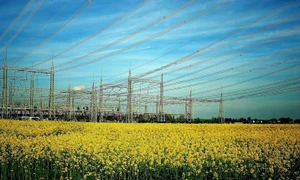
Battery manufacturers and electricity power companies penned a letter to EU lawmakers today (July 4) urging them not to withdraw the ban on combustion cars by 2035 and to instead direct efforts towards Europe’s e-mobility ecosystem and make EU industry competitive.
The letter with nine signatories, including Eurelectric, Eurocities, the International Copper Association Europe, and Transport & Environment (T&E), came in response to a European People’s Party (EPP) draft document which pointed to weakening the bloc’s plan to phase-out internal combustion engine (ICE) vehicles.
Led by Eurelectric, a Brussels-based association representing the European electricity industry, the letter argues that abandoning such ambitions will delay decarbonisation efforts under Europe’s climate goals and dent long-term investments in e-mobility, with a direct impact on public health and the environment.
“Any reopening or weakening of these standards [EU law to phase out ICE vehicles] would penalise these efforts and would divert investors from investing into European e-mobility,” read the letter. “We urge that you make long-term industrial competitiveness your priority over the next five years for the EU to implement the Green Deal.”
While group formation is still ongoing, the centrist EPP will be the major force in the upcoming European Parliament cycle and its green leader Peter Liese, a veteran German MEP who was recently re-elected, is willing to keep the climate targets but wants to ditch red tape, including “improving legislation” to car CO2 emissions limits, as reported by Euronews.
The centrist group wants to “revise the rules for CO2 reduction” for new cars and vans adopted in April by EU countries to “allow for the use of alternative zero-emission fuels” beyond 2035, a draft paper coming out from the EPP’s group convention in Portugal this week revealed. Such fuels can span from biomethane, to hydrogen, ammonia or biofuels.
Ivan-Asen Ivanov, energy policy officer at Eurelectric sees the EPP’s plans as a “dangerous development” for the EU’s clean transport transition and “a threat to legislative stability”.























